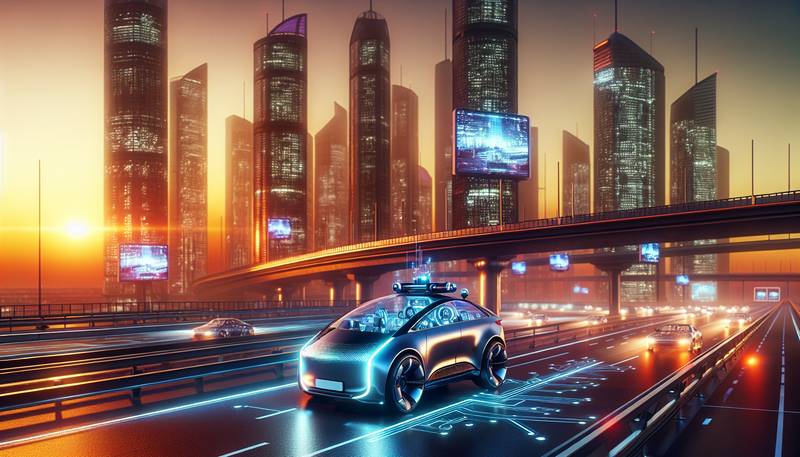Self-Driving Cars: Navigating the Road Ahead

The Dawn of a New Era
The concept of self-driving cars, also known as autonomous vehicles (AVs), has been a topic of fascination for decades. From science fiction novels to blockbuster movies, the idea of cars that can drive themselves has captured the imagination of people around the world. But now, what was once a figment of our imagination is quickly becoming a reality. With major advancements in technology and significant investments from both the private and public sectors, self-driving cars are no longer just a dream, but a tangible future that is just around the corner.
The Technology Behind Self-Driving Cars
Self-driving cars rely on a combination of sensors, cameras, and artificial intelligence to navigate roads and make decisions. The sensors and cameras are used to detect objects, traffic signs, and lane markings, while the artificial intelligence processes this data and makes decisions on how to proceed. The technology is constantly improving, and companies like Tesla, Waymo, and Uber are leading the charge in developing and testing autonomous vehicles.
The Role of Artificial Intelligence
Artificial intelligence (AI) is the driving force behind self-driving cars. It's what enables these vehicles to process information from their surroundings and make decisions in real-time. However, developing AI that can handle the complexities of driving is no easy feat. It requires sophisticated algorithms and vast amounts of data to train the AI to recognize and respond to various scenarios. Nevertheless, progress is being made, and we are inching closer to a world where self-driving cars are a common sight on our roads.
The Potential Benefits of Self-Driving Cars
Self-driving cars have the potential to revolutionize the way we travel. For starters, they could drastically reduce the number of accidents on the road. Human error is the cause of over 90% of car accidents, and by eliminating the need for human drivers, self-driving cars could make our roads much safer. Additionally, autonomous vehicles could also help to reduce traffic congestion, as they can communicate with each other and optimize traffic flow.
Another potential benefit of self-driving cars is the positive impact they could have on the environment. By optimizing routes and reducing traffic congestion, autonomous vehicles could lead to a decrease in fuel consumption and carbon emissions. Furthermore, self-driving cars could also make car-sharing services more practical, which could lead to fewer cars on the road and a further reduction in emissions.
The Challenges Ahead
Despite the potential benefits of self-driving cars, there are still many challenges that need to be overcome before they can become a mainstream reality. One of the biggest challenges is regulation. Governments around the world are still figuring out how to regulate autonomous vehicles, and the lack of clear rules and guidelines is hindering the progress of self-driving cars.
The Ethics of Self-Driving Cars
Another challenge is the ethical implications of self-driving cars. For example, how should an autonomous vehicle respond in a situation where an accident is unavoidable? Should it prioritize the safety of its passengers, or the safety of pedestrians? These are questions that need to be answered before self-driving cars can be fully integrated into society.
The Road Ahead
Despite the challenges, the future of self-driving cars looks bright. Companies are continuing to invest in the development of autonomous vehicles, and governments are starting to put regulations in place. As the technology improves and the benefits become more apparent, it's only a matter of time before self-driving cars become a common sight on our roads. The road ahead may be bumpy, but the destination is clear: a world where self-driving cars make our roads safer, our commutes more efficient, and our environment cleaner.
So buckle up and get ready for the ride of the future. Self-driving cars may have seemed like a distant dream just a few years ago, but now, they are closer than ever. The road ahead is wide open, and self-driving cars are ready to take us on a journey that will change the way we travel forever.


